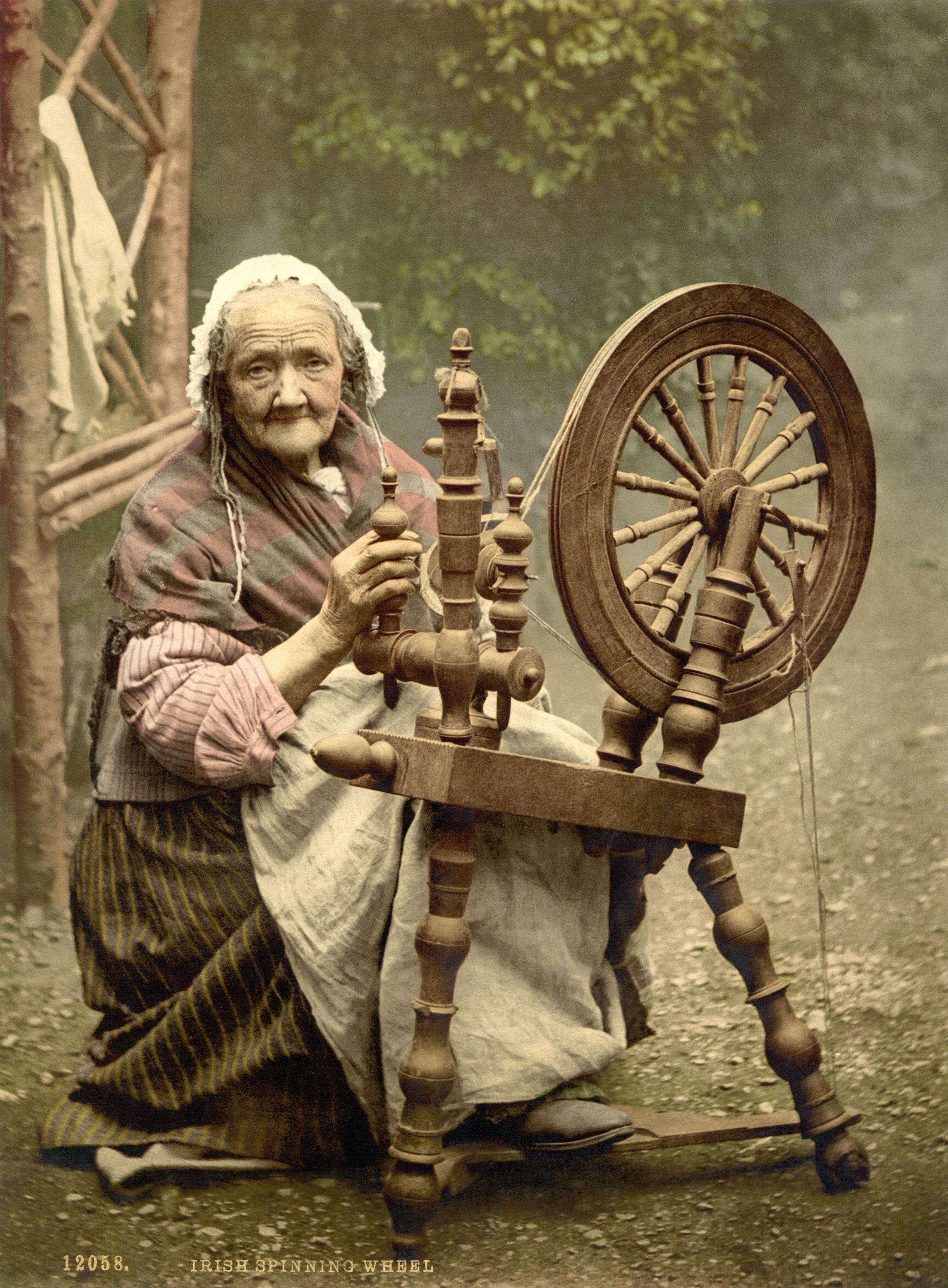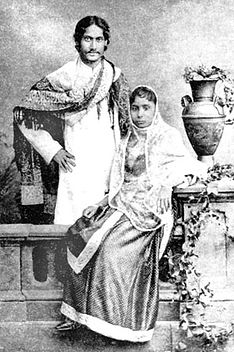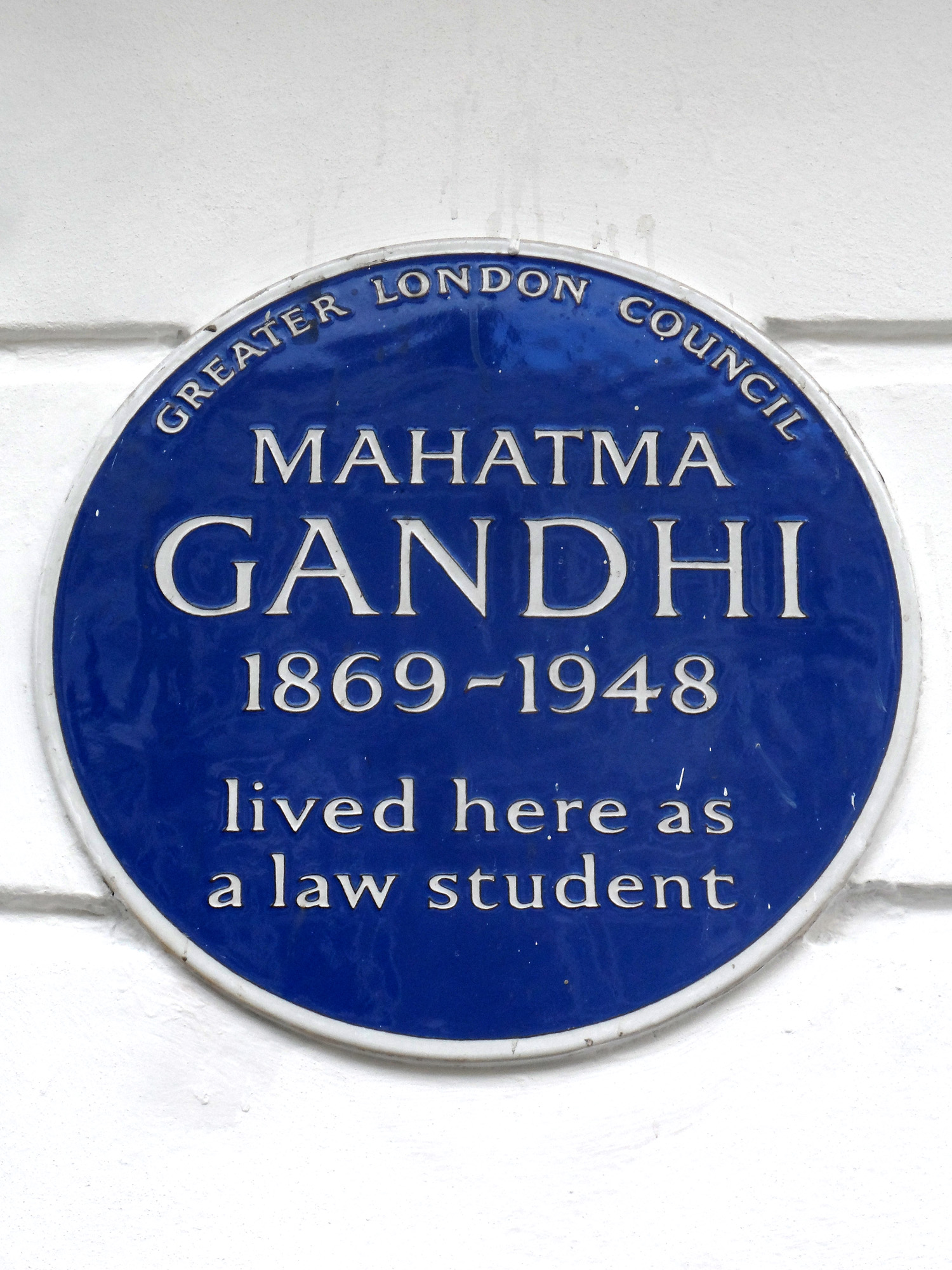|
The Cult Of The Charkha
''The Cult of the Charkha'' is an essay by Rabindranath Tagore which first appeared in September 1925 in the ''Modern Review (Calcutta), Modern Review''. In the essay Tagore offered critique on the Gandhism, Gandhian ethic of "Charkha (spinning wheel), charkha-spinning" as an activity which could rejuvenate the Indian masses during the Indian independence movement. Context Rabindranath Tagore and Mohandas Karamchand Gandhi were among the two most influential Indian figures during the independence movement against the colonial rule of the British. Tagore became the first non-European to be awarded the Nobel Prize for Literature in 1913 and was instrumental in reshaping Bengali literature and music. He was considered widely as a colossus of the Indian intelligentsia. Gandhi, on the other hand, emerged as the pre-eminent political and ideological leader of India during the Indian independence movement. He was a mobilizer of the masses and respected and venerated across India as the ... [...More Info...] [...Related Items...] OR: [Wikipedia] [Google] [Baidu] |
Rabindranath Tagore
Rabindranath Tagore (; bn, রবীন্দ্রনাথ ঠাকুর; 7 May 1861 – 7 August 1941) was a Bengali polymath who worked as a poet, writer, playwright, composer, philosopher, social reformer and painter. He reshaped Bengali literature and music as well as Indian art with Contextual Modernism in the late 19th and early 20th centuries. Author of the "profoundly sensitive, fresh and beautiful" poetry of ''Gitanjali'', he became in 1913 the first non-European and the first lyricist to win the Nobel Prize in Literature. Tagore's poetic songs were viewed as spiritual and mercurial; however, his "elegant prose and magical poetry" remain largely unknown outside Bengal. He was a fellow of the Royal Asiatic Society. Referred to as "the Bard of Bengal", Tagore was known by sobriquets: Gurudev, Kobiguru, Biswakobi. A Bengali Brahmin from Calcutta with ancestral gentry roots in Burdwan district* * * and Jessore, Tagore wrote poetry as an eight-yea ... [...More Info...] [...Related Items...] OR: [Wikipedia] [Google] [Baidu] |
Modern Review (Calcutta)
''The Modern Review'' was a monthly magazine published in Calcutta founded and edited by Ramananda Chatterjee. It was in circulation between 1907 and 1995. The magazine emerged as an important forum for the Indian nationalist intelligentsia. It carried essays on politics, economics, sociology, as well as poems, stories, travelogues, and sketches. Radhakamal Mukerjee published his early, pioneering essays on environmental degradation in India here and Verrier Elwin reports from the Gond country were first published here. Numerous other friends of India including Rev. Jabez T. Sunderland wrote regularly for the magazine. Another indication of the journal's stature was the publication, within its pages, of Jawaharlal Nehru's pseudonymous autocritique ''Rashtrapati'', by ‘Chanakya’ in November 1937. Ramachandra Guha indicates that alone was evidence that it was "leading journal of the progressive Indian intelligentsia." The ''Modern Review'' had a sister magazine ''Prabasi'' ... [...More Info...] [...Related Items...] OR: [Wikipedia] [Google] [Baidu] |
Gandhism
Gandhism is a body of ideas that describes the inspiration, vision, and the life work of M.K. Gandhi. It is particularly associated with his contributions to the idea of nonviolent resistance, sometimes also called civil resistance. The term "Gandhism" also encompasses what Gandhi's ideas, words, and actions mean to people around the world and how they used them for guidance in building their own future. Gandhism also permeates into the realm of the individual human being, non-political and non-social. A Gandhian can mean either an individual who follows, or a specific philosophy which is attributed to, Gandhism. However, Gandhi did not approve of the term 'Gandhism'. As he explained: In the absence of a "Gandhism" approved by Gandhi himself, there is a school of thought that one has to derive what Gandhism stands for, from his life and works. One such deduction is a philosophy based on "truth" and "non-violence" in the following sense. First, one should acknowledge and acce ... [...More Info...] [...Related Items...] OR: [Wikipedia] [Google] [Baidu] |
Charkha (spinning Wheel)
A spinning wheel is a device for spinning thread or yarn from fibres. It was fundamental to the cotton textile industry prior to the Industrial Revolution. It laid the foundations for later machinery such as the spinning jenny and spinning frame, which displaced the spinning wheel during the Industrial Revolution. Function The basic spinning of yarn involves taking a clump of fibres and teasing a bit of them out, then twisting it into a basic string shape. The spinner continues pulling and twisting to make it longer and longer, and to control the thickness. Thousands of years ago, people began doing this onto a stick, called a spindle, which was a very lengthy process. The actual wheel part of a spinning wheel does not take the place of the spindle, instead it automates the twisting process, allowing one to "twist" the thread without having to constantly do so manually, and also the size of the wheel lets one more finely control the amount of twist. The thread still ends up o ... [...More Info...] [...Related Items...] OR: [Wikipedia] [Google] [Baidu] |
Indian Independence Movement
The Indian independence movement was a series of historic events with the ultimate aim of ending British Raj, British rule in India. It lasted from 1857 to 1947. The first nationalistic revolutionary movement for Indian independence emerged from Bengal. It later took root in the newly formed Indian National Congress with prominent moderate leaders seeking the right to appear for Indian Civil Service (British India), Indian Civil Service examinations in British India, as well as more economic rights for natives. The first half of the 20th century saw a more radical approach towards self-rule by the Lal Bal Pal, Lal Bal Pal triumvirate, Aurobindo Ghosh and V. O. Chidambaram Pillai. The final stages of the independence struggle from the 1920s was characterized by Congress' adoption of Mahatma Gandhi's policy of non-violence and Salt March, civil disobedience. Intellectuals such as Rabindranath Tagore, Subramania Bharati, and Bankim Chandra Chattopadhyay spread patriotic awarenes ... [...More Info...] [...Related Items...] OR: [Wikipedia] [Google] [Baidu] |
Tagore Gandhi
Rabindranath Tagore (; bn, রবীন্দ্রনাথ ঠাকুর; 7 May 1861 – 7 August 1941) was a Bengali polymath who worked as a poet, writer, playwright, composer, philosopher, social reformer and painter. He reshaped Bengali literature and music as well as Indian art with Contextual Modernism in the late 19th and early 20th centuries. Author of the "profoundly sensitive, fresh and beautiful" poetry of ''Gitanjali'', he became in 1913 the first non-European and the first lyricist to win the Nobel Prize in Literature. Tagore's poetic songs were viewed as spiritual and mercurial; however, his "elegant prose and magical poetry" remain largely unknown outside Bengal. He was a fellow of the Royal Asiatic Society. Referred to as "the Bard of Bengal", Tagore was known by sobriquets: Gurudev, Kobiguru, Biswakobi. A Bengali Brahmin from Calcutta with ancestral gentry roots in Burdwan district* * * and Jessore, Tagore wrote poetry as an eight-year-old ... [...More Info...] [...Related Items...] OR: [Wikipedia] [Google] [Baidu] |
Mohandas Karamchand Gandhi
Mohandas Karamchand Gandhi (; ; 2 October 1869 – 30 January 1948), popularly known as Mahatma Gandhi, was an Indian lawyer, Anti-colonial nationalism, anti-colonial nationalist Quote: "... marks Gandhi as a hybrid cosmopolitan figure who transformed ... anti-colonial nationalist politics in the twentieth-century in ways that neither indigenous nor westernized Indian nationalists could." and Political ethics, political ethicist Quote: "Gandhi staked his reputation as an original political thinker on this specific issue. Hitherto, violence had been used in the name of political rights, such as in street riots, regicide, or armed revolutions. Gandhi believes there is a better way of securing political rights, that of nonviolence, and that this new way marks an advance in political ethics." who employed nonviolent resistance to lead the successful Indian independence movement, campaign for India's independence from British Raj, British rule, and to later inspire movements ... [...More Info...] [...Related Items...] OR: [Wikipedia] [Google] [Baidu] |
Mahatma
Mahatma (English pronunciation: , sa, महात्मा, translit=mahātmā) is an honorific used in India. The term is commonly used for Mohandas Karamchand Gandhi, who is often referred to simply as "Mahatma Gandhi". Albeit less frequently, this epithet has also been used with regard to such people as Basava (1131–1167), Swami Shraddhanand (1856–1926), Lalon Shah (1772–1890), Ayyankali (1863–1941), and Jyotirao Phule (1827–1890). The term ''mahātmā'' has also been historically used for a class of religious scholars in Jainism; for the selected religious leaders in Theosophy; and for local religious teachers in the Divine Light Mission church. Etymology The term ''Mahatma'' derives from the Sanskrit terms महा (mahā), meaning "great" and आत्मा (ātmā), meaning "soul". In Theosophy The word, used in a technical sense, was popularized in theosophical literature in the late 19th century, when Helena Blavatsky, one of the founders of the T ... [...More Info...] [...Related Items...] OR: [Wikipedia] [Google] [Baidu] |
Swadeshi
The Swadeshi movement was a self-sufficiency movement that was part of the Indian independence movement and contributed to the development of Indian nationalism. Before the BML Government's decision for the partition of Bengal was made public in December 1903, there was a lot of growing discontentment among the Indians. In response the Swadeshi movement was formally started from Town Hall Calcutta on 7 August 1905 to curb foreign goods by relying on domestic production. Mahatma Gandhi described it as the soul of swaraj (self-rule). The movement took its vast size and shape after rich Indians donated money and land dedicated to Khadi and Gramodyog societies which started cloth production in every household. It also included other village industries so as to make village self-sufficient and self-reliant. The Indian National Congress used this movement as arsenal for its freedom struggle and ultimately on 15 August 1947, a hand-spun Khadi 'tricolor ashok chakra' Indian flag was unfurl ... [...More Info...] [...Related Items...] OR: [Wikipedia] [Google] [Baidu] |
Non-cooperation Movement
The Non-cooperation movement was a political campaign launched on 4 September 1920, by Mahatma Gandhi to have Indians revoke their cooperation from the British government, with the aim of persuading them to grant self-governance.Noncooperation movement " ''Encyclopædia Britannica'', December 15, 2015. Retrieved 2021-08-10.Wright, Edmund, ed. 2006. non-cooperation (in British India) " ''A Dictionary of World History'' (2nd ed.). Oxford University Press. ISBN 9780192807007. This came as result of the |
Caste System
Caste is a form of social stratification characterised by endogamy, hereditary transmission of a style of life which often includes an occupation, ritual status in a hierarchy, and customary social interaction and exclusion based on cultural notions of purity and pollution. * Quote: "caste ort., casta=basket ranked groups based on heredity within rigid systems of social stratification, especially those that constitute Hindu India. Some scholars, in fact, deny that true caste systems are found outside India. The caste is a closed group whose members are severely restricted in their choice of occupation and degree of social participation. Marriage outside the caste is prohibited. Social status is determined by the caste of one's birth and may only rarely be transcended." * Quote: "caste, any of the ranked, hereditary, endogamous social groups, often linked with occupation, that together constitute traditional societies in South Asia, particularly among Hindus in India. Althoug ... [...More Info...] [...Related Items...] OR: [Wikipedia] [Google] [Baidu] |
Gandhi Spinning
Mohandas Karamchand Gandhi (; ; 2 October 1869 – 30 January 1948), popularly known as Mahatma Gandhi, was an Indian lawyer, anti-colonial nationalist Quote: "... marks Gandhi as a hybrid cosmopolitan figure who transformed ... anti-colonial nationalist politics in the twentieth-century in ways that neither indigenous nor westernized Indian nationalists could." and political ethicist Quote: "Gandhi staked his reputation as an original political thinker on this specific issue. Hitherto, violence had been used in the name of political rights, such as in street riots, regicide, or armed revolutions. Gandhi believes there is a better way of securing political rights, that of nonviolence, and that this new way marks an advance in political ethics." who employed nonviolent resistance to lead the successful campaign for India's independence from British rule, and to later inspire movements for civil rights and freedom across the world. The honorific ''Mahātmā'' (Sanskrit: ... [...More Info...] [...Related Items...] OR: [Wikipedia] [Google] [Baidu] |









